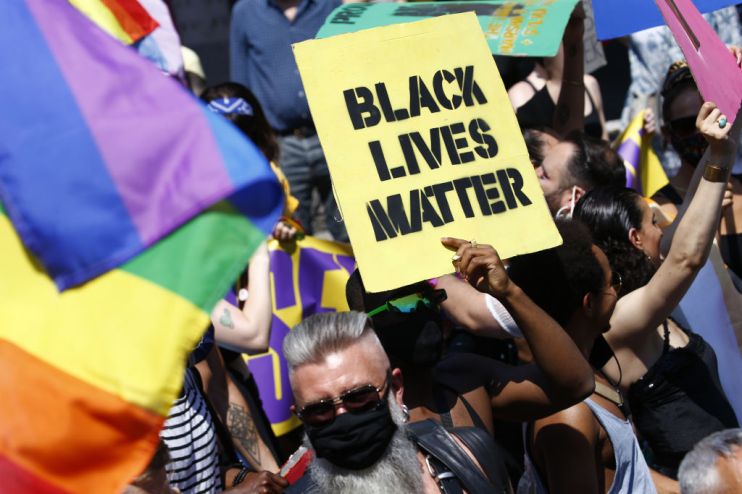Pride in a pandemic: Putting intersectionality top of the agenda

The most vulnerable and marginalised members of society have faced the worst consequences of this global health crisis.
Coronavirus has highlighted the many ways in which issues related to gender and sexual identity, race, and socioeconomic circumstances all intersect. Equality is becoming one of the defining narratives of this pandemic.
People are waking up to the devastating impact of social deprivation. We have learnt that, in the UK, those living in deprived areas are twice as likely to die from this disease. And on a global scale, the Black Lives Matter campaign has shone a spotlight on racial inequalities and ignited a movement which is bearing some hopeful signs of triggering change in social and political policy.
But much more is needed.
Pride in London’s 2020 theme is #YouMeUsWe. This speaks to the importance of joining forces, demanding that we face up to the challenge of becoming better allies with all marginalised communities.
The campaign’s aim is to generate 30,000 acts of allyship — one for every person who would have taken part in the festivities this month. This has been a chance for LGBTQ+ groups and people to reflect anew upon how their own paths towards equality were started.
Fundamental to this were the Stonewall riots of 1969, which were also born in response to police brutality and basic demands for equality. This, too, was a moment of allyship that cut across boundaries of ethnicity, sexuality and class. Those at the forefront of Stonewall were LGBTQ+ people of colour, including black trans activists such as Marsha P. Johnson.
With intersectionality top of the agenda, it is worth remembering too that another particularly hard-hit group of people during this pandemic are young people at risk.
The charity Renaissance Foundation works across East London to support young patients in hospitals, students at risk, and young carers. The young people they work with are from diverse backgrounds, and the charity’s focus is on helping them reach their full potential through transformative experiences and a three-year learning programme.
This year, in the spirit of joining forces, the annual charity art exhibition Queer Frontiers is supporting this cause. The exhibition was set up by east London based art consultancy ARTIQ to increase the visibility of international queer artists, who are under-represented in the art world, and to raise money for the queer community.
The selection of 23 artists featured in the exhibition are from international and diverse backgrounds. Alia Romagnoli’s photography is inspired by her experience of growing up in India as an LGBTQ+ person. Michael Prescott’s ink drawings reflect on being gay and working class in a post-Brexit Britain. And Hisham Echafaki’s intricate multi-dimensional works incorporate trompe-l’oeil and anthropomorphic effects as a comment on environmental protection and conservation.
In this exhibition, the individuality of each of those experiences are joined together in celebrating queer identity. Deliberately low entry prices have been part of a strategy of allowing more people an avenue into buying art they love — for a good cause. The proceeds will be split evenly between the charity and the artists.
This partnership is demonstrating a microcosm of how communities can and should continue to support one another. At a time when we would normally be celebrating LGBTQ+ Pride in our capital, it is an example of how acting collectively and drawing on local participation can truly impact change on a grand scale.
If we support one another, maybe we can start to enact real change.
Main image credit: Getty